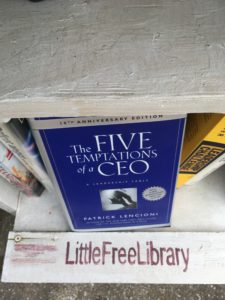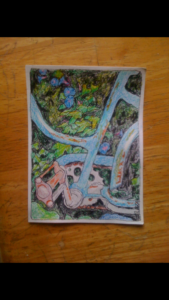One of my biggest challenges in life is that I have a tendency to be a bit lazy, and also to want to give up at the first sign of difficulty. “Persistence is 99% of everything,” I’ve often heard it said. And looking around me, at successful people and at the successes and failures of my own life, I have to agree.
Just about everything I’ve done that ended up being useful and helpful (from teaching myself a language, to writing letters to the editor, to writing a book — to name just a few examples) were things I almost quit before finishing, or never started in the first place.
Rick Hanson, PhD (author of RESILIENT: How to Grow an Unshakable Core of Calm, Strength, and Happiness (written with Forrest Hanson)), has written the most well-organized breakdown of the components of resilience, and how to cultivate each component, that I’ve ever run across. The attributes we think of as baked-in to our personality are far more malleable than we think; we really can re-wire our own brains for the good. Check out Mr. Hanson’s TED talks also.
I also recommend Angela Duckworth’s book GRIT: The Power of Passion and Perseverance. Check out her TED Talk on that subject here; it’s what inspired me to go ahead and buy her book.
And finally, Your Own Worst Enemy: Breaking the Habit of Adult Underachievement, a book by Kenneth W. Christian, Ph.D., really spoke to me.
What does all of this have to do with living a low-footprint life?
For starters, the point of low-footprint living (other than conserving resources and setting a good example for others) is to lower our overhead so we can focus on what really gives meaning to our lives. Also, to mobilize our creativity for the greater good. And a big part of lowering our overhead is clearing mental obstacles. Strengthen your mind, make a better world.
A final note: This blog post had been sitting in draft-limbo for months. It just seemed too lame and too difficult to finish. I have a bunch of other posts piled up in my draft stack. I’m going to plug away and get them done.
Persistence. It isn’t always easy and it’s not my strong suit … and yet I persist in cultivating it, so I guess I’m not a lost cause. I hope you do too. Keep plugging away, don’t give up! Make that sketch, write that letter, call that person, sort out that closet. You never know what you’ll find, who you’ll help, what you’ll gain.





